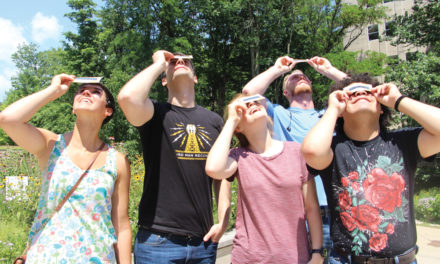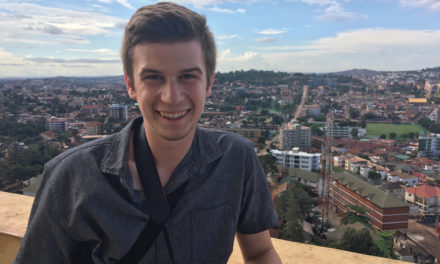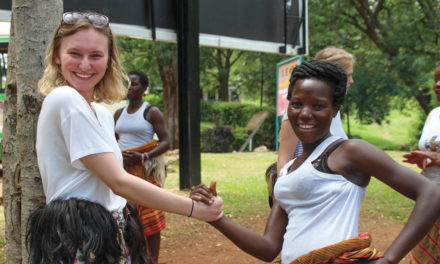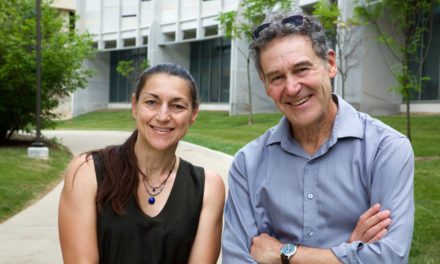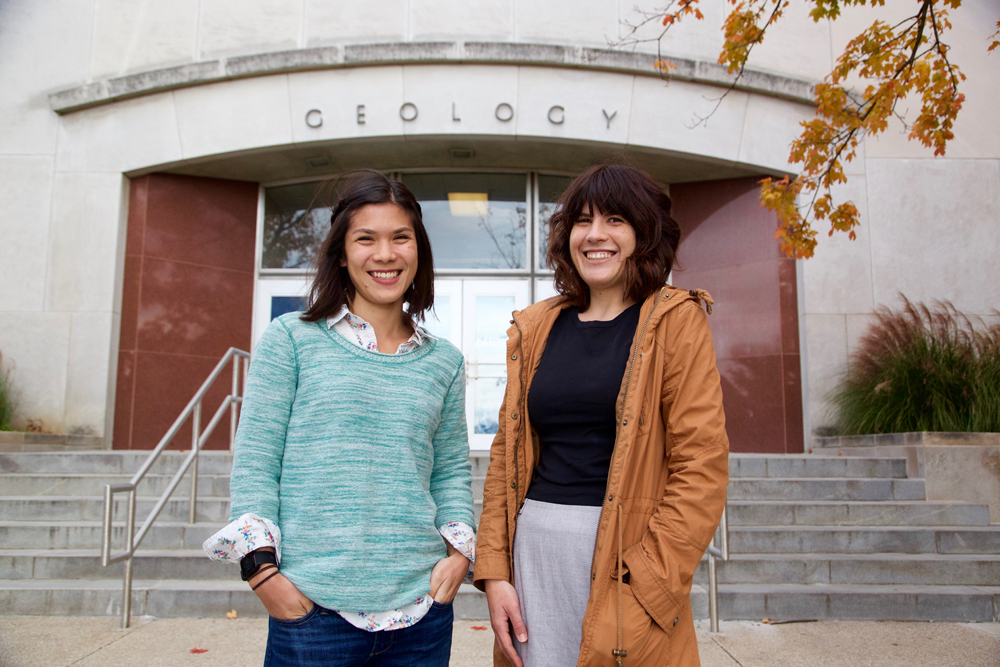
(l-r) Sarah Schanz and Maja Šljivar. Photo by Jim Krause
BY PETER DORFMAN
After the 2016 election, and with the installation of the Trump administration, many felt that support for science was in jeopardy. And when scientists are under pressure, that pressure is particularly intense for women, says Sarah Schanz, one of the new leaders of the Indiana University chapter (or “pod”) of 500 Women Scientists.
The advocacy group was founded by four women graduate students at the University of Colorado Boulder. They published an open letter on their website supporting science, women, minorities, and other marginalized groups, hoping to gather 500 signatures. Within hours they had surpassed that number. To date, more than 20,000 people from 100 countries have signed in support.
“It was just a recognition that women are here, some of them are scientists, and the climate is relatively hostile,” says Schanz, 28, a postdoctoral fellow in the Department of Earth and Atmospheric Science.
“The Colorado group started the first pod, and the organization grew organically,” says Maja Šljivar, 28, a graduate student in biology. “Pods started forming everywhere. They’re international now.”
Both recent arrivals at IU, Schanz and Šljivar found a barely functioning Bloomington pod. They took charge in June. “The Bloomington pod needed leadership, and we volunteered,” Schanz says.
Schanz and Šljivar inherited a list of seven names at IU. Two had left; three were on sabbatical. “We just started emailing blindly,” Šljivar says.
In September, Schanz and Šljivar invited women scientists at IU to a barbecue in Bryan Park. More than 50 came—undergraduates, grad students, postdocs, faculty members, and members of the community. “It was a vibrant, amazing event,” Šljivar exclaims.
The IU pod has grown to more than 70 members. “We have momentum,” Schanz says. “We’re planning on a tiered leadership structure, with an executive group and a larger action group that can help organize events.”
Šljivar sees the group as a way to help women scientists achieve even more in the future. “The pod allows aspiring women scientists to see women in senior positions, and that gives them a goal to shoot for,” Šljivar explains.
Visit 500WomenScientists.org for more information.


